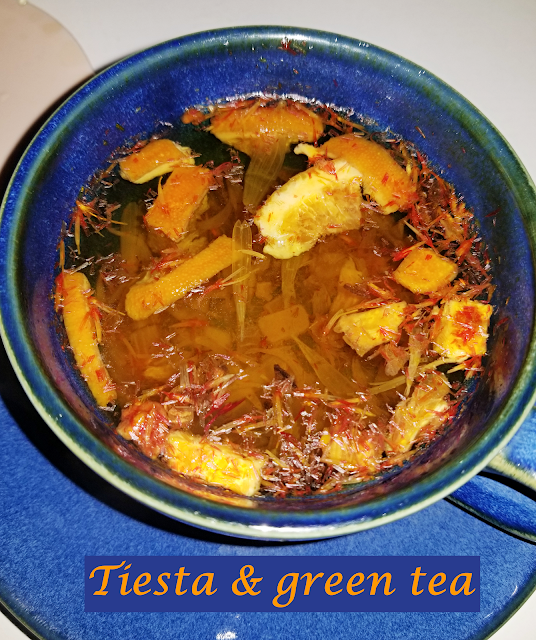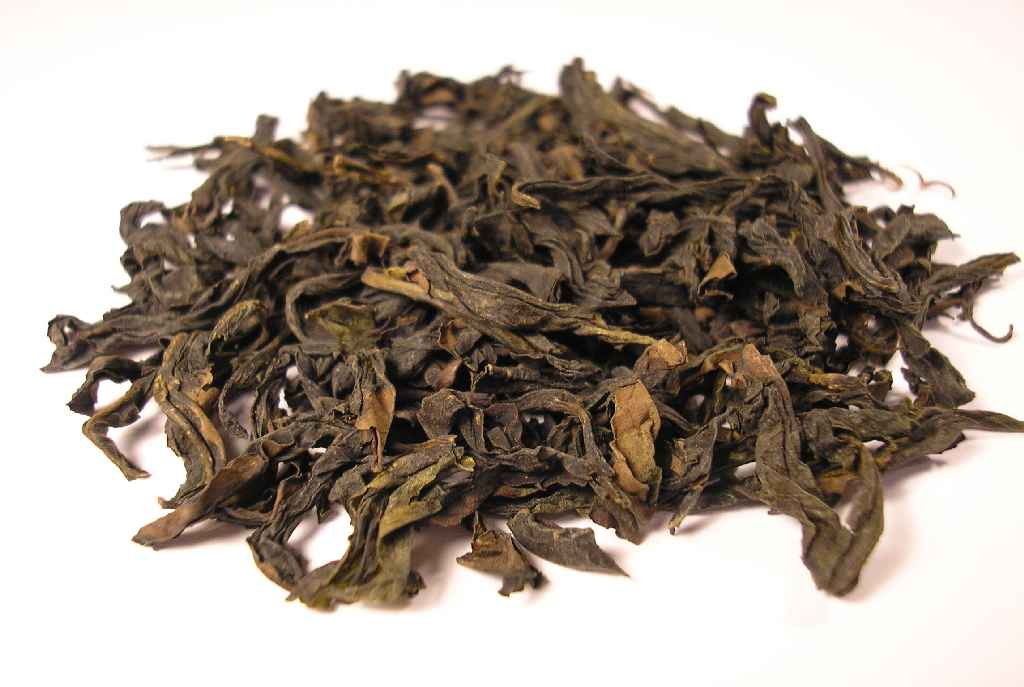I've been making some changes in my diet for the last couple of years. I've cut back on salt and sugar; I try to do IF every so often (haha); and I have cut back on my coffee intake.
Coffee is supposed to be good for you, but I drink mine with sweetened creamer. That's not good. I have only managed to drink particular brands of coffee black-no-sugar - Luzianne (red bag, dark roasted is one - but I have trouble finding the brands I like. So I have just cut back to one 10-11oz cup first thing in the morning. Sometimes I don't even finish it off.
Tea is my replacement beverage. I found one I love so much that I splurge with a regular subscription via Walmart. I have backup teas because it's too pricey for me to drink too often - I need to use far less per cup! I like anything peach- or mango-flavored.
 |
| $9/5.5oz 40-50 cups (I drink too much of it!) |
Green tea is supposed to be good for the body. Okay, but it's not the tastiest tea I've had - at least without some help. I have tried all kinds of brands and types of green tea and just cannot deal with the flat and bitter flavor. I absolutely cannot tolerate Matcha unless it's whipped into some too-sweet Starbucks-like concoction. So I have found a way to drink at least 3 to 4 cups of green tea a day.
(By the way, I am going to be asking my nephrologist about green tea at my coming appointment. There is a lot of conflicting info online regarding the effects of green tea on patients with CKD. On the one hand, I've heard that it's great because of the antioxidants and, on the other hand, I've heard that it has compounds that could be harmful to compromised kidneys. This is with I don't use Google for my medical issues! I am hoping that my doc will say the tea is okay. I do expect that there might be some limitations or other suggestions from him.)
Here is how I get my green tea fix... I get the affordable Bigelow green tea from Walmart, along with some Bigelow Chamomile Vanilla, and Twinings' Peach & Orange. Anytime I drink green tea, I add a bag of the Peach & Orange or a tiny bit of the pricey Tiesta Maui Mango. I use a some of the raw mountain honey as a sweetener. The difference is incredible.
 |
| Least fave: the Chamo-Vanilla Honey |
The Peach & Orange tea is not one I normally would have chosen but I was in a hurry and using Walmart's Scan & Go app (yes, I will be doing a little review on that! I did a review of that) for the first time. I haven't even had it without the green tea yet. Turns out, I kind of dig the Peach & Orange.
 |
| I definitely use too much of the Tiesta! 🤣 |
I already have some Hibiscus tea, but I blogged about why I need to limit my intake...
So I have been drinking 2 cups of green tea (sometimes 3) almost every day. What I have noticed is that it's an appetite suppressant. Interesting. I should have (and may have) known that before now but it surprised me.
I might try drinking one of my green tea concoctions with no honey. I think I might be able to if there is some Hibiscus or strongly-flavored fruit tea in the mix. Even so, the honey has to be better than all the sugar in those yummy creamers I love.
I don't know if this will help anyone else who has been struggling to like green tea but it works for me. I actually have come to really enjoy the drinks. I'm not sure if I will ever completely be off the coffee but I am certainly drinking a lot less of it these days.
Peace
--Free
DISCLAIMER: I am not a healthcare professional. This is just a personal blog, not a healthcare source. Talk with your healthcare team before you start consuming regular amounts of anything. I do know that, for me, hibiscus tea lowers my BP so I have to be careful!









.jpg)



.jpg)








